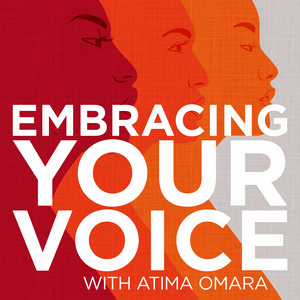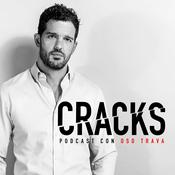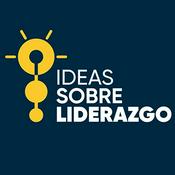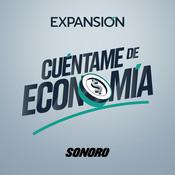52 episodios
Bonus Episode: 2026 Midterms Preview: What 2024 and 2025 Election Data Tells Us with ’ Roshni Nedungadi
03/2/2026 | 41 minWe’re back from hiatus with a deep-dive political conversation you’ve probably been craving. Atima is joined by returning guest Roshni Nedungadi, founding partner and Chief Research Officer at HIT Strategies, to break down what happened in the 2024 and 2025 elections, why turnout shifted among young voters and voters of color, and what it all means as we head into 2026.
This episode focuses on the big question: how do Democrats win when trust is low, costs are high, and voters are exhausted by chaos—and what does the data say voters actually need to hear to show up?
IN THIS EPISODE:
Why turnout dropped among Black, Latino, and AAPI voters in 2024—and what that meant for Democrats
HIT Strategies’ core framework: mobilize marginalized base voters vs. prioritizing persuadable moderates
The “what have you done for me lately?” question young voters kept asking—and why it mattered
Why cost of living (not abstract “the economy”) remains the dominant driver
What 2025 results suggested: broad movement toward Democrats in many places, including shifts even in rural areas
Why “vote against Trump” isn’t enough—and what voters want to vote for instead
What voters mean when they say they’re tired of empty promises and want real action
The role of authenticity: why messaging can’t just be “poll-tested paragraphs”
What issues are rising now: healthcare affordability and fears tied to racism/discrimination and safety
How to read polls critically (sample size, registered vs. likely voters, and why “women voters” stats often erase women of color)
What everyday people can do: talk to your networks and break through siloed information
If you’re trying to make sense of conflicting narratives—“the base is disengaged” vs. “Democrats are rebounding”—this episode helps you hold both truths at once. Roshni explains what the data shows about trust, turnout, and persuasion, and why the road to 2026 depends on rebuilding relationships with the voters who make up the Democratic coalition—especially young voters and voters of color.
Timestamps:
00:00:00 — Atima welcomes listeners back from hiatus + introduces Roshni Gati (HIT Strategies) and the focus: what 2025 results mean for 2026
00:03:00 — The 2024 turnout drop: Black, Latino, and AAPI turnout declines (and what that signaled for Democrats)
00:07:00 — Why young voters of color disengaged in 2024: “Democrats have been in charge… what have you done for my life?”Bonus Episode: The Double Tax: Beauty, Labor, and Inequity for Women of Color w/Anna Gifty Opku-Agyeman
18/11/2025 | 1 h 29 minIn this episode, I am joined by my guest, the brilliant award-winning economist Anna Gifty Opoku-Agyeman writer, founder, and speaker, to discuss her new book: The Double Tax: How Women of Color Are Overcharged and Underpaid.
We dive deep into the unseen labor and costs that women, especially women of color, navigate daily—whether it’s managing societal expectations around beauty, facing structural inequities in the workplace, or advocating for change in a world resistant to it. From colorism and the “hot girl tax” to pay transparency, unionization, and the power of community, Anna shares candid insights, expertise, and personal experiences to illuminate both challenges and actionable solutions.
🔍 IN THIS EPISODE:
The global implications of anti-DEI movements and the enduring impact on marginalized communities
Understanding colorism and the “hot girl tax” as labor that women perform to meet societal standards
Personal stories of navigating career expectations, leadership roles, and professional appearance
Strategies for minimizing the time and energy spent on appearance while maintaining credibility
The societal norm shift: advocating for women to be seen without performing beauty
Anti-aging culture, Instagram filters, and unrealistic beauty standards affecting young women
Double standards in professional settings between men and women
Structural solutions: pay transparency, unionization, and collective bargaining
Building supportive communities among women of color to create opportunities and resilience
Advice for allies on moving from awareness to tangible action
Reflections on reliability, resilience, and advocacy within Black women’s leadership
This episode is essential listening for anyone navigating professional spaces as a woman of color, ally, or advocate. It explores the intersection of appearance, labor, and structural inequity, while offering tangible strategies for change, solidarity, and empowerment. Whether you’re seeking insight into pay equity, building supportive networks, or challenging societal norms, this conversation provides practical advice and a call to action for both individuals and organizations.
TIMESTAMPS :
03:45 – The global impact of DEI and anti-DEI movements
08:10 – Colorism and the “hot girl tax”: understanding appearance labor
12:35 – Personal reflections: growing up as a defiant tomboy
17:20 – Career and appearance: expectations when running for leadership
22:50 – Streamlining beauty routines while maintaining professional presence
27:15 – The societal norm shift: women being taken seriously without performing beauty
32:40 – Anti-aging culture and Instagram filters impacting young women
37:05 – The double standard: men vs women in professional settings
41:50 – Structural solutions: pay transparency and unionization
46:25 – Importance of community among women of color for opportunities and support
51:10 – Advice for allies: moving beyond listening to tangible action
56:00 – Reliability and resilience of Black women in political and professional spaces
01:00:45 – Reflection on social progress, corporate accountability, and anti-Blackness
About Anna Gifty Opoku-Agyeman
is an award-winning economist, writer, founder, and speaker. She is a doctoral student at Harvard Kennedy School studying public policy and economics where she focuses on race, gender, and the economy. She is the youngest recipient for a CEDAW Women’s Rights Award by the United Nations Convention on the Elimination of All Forms of Discrimination Against Women formerly awarded to Vice President Kamala Harris. Her first book, The Black Agenda, received widespread coverage from outlets like NPR, ESSENCE, TELEMUNDO, FOX Soul, and The New York Times. Her...In the season finale of Embracing Your Voice, Atima reflects on the themes of Season 4—centered on women of color in business—and the lessons we can all carry forward. From navigating setbacks in traditional workplaces to carving out new paths that honor who we really are, this episode is both a look back and a rallying call for what’s ahead.
IN THIS EPISODE:
Why embracing all of who you are is a radical act of leadership
The hard truths about workplace setbacks for women of color in 2025
Why side hustles, freelancing, and entrepreneurship can provide both safety nets and freedom
Atima’s personal reflections on creating this season while writing her upcoming book
A heartfelt call to action: supporting women-led podcasts so their voices are heard
This finale ties together the stories, struggles, and triumphs of women of color who refuse to compromise their identities for success. It’s a reminder that authenticity isn’t about being palatable—it’s about being powerful. If you’ve ever felt pressured to shrink yourself to fit in, this conversation will encourage you to stand taller and build success on your terms.
Share this podcast with 3 friends who would love it!
Timestamps:
00:01:00 – Season 4’s focus on women of color in business
00:02:00 – The challenge of “palatable authenticity” in the workplace
00:03:00 – Economic & cultural backlash women of color face today
00:05:00 – Redefining career success: side hustles, freelancing, and entrepreneurship
00:06:00 – Behind the scenes: Atima’s book project and what’s next for the show
If you enjoyed the show and you want to join our community of other women of color who are embracing their voice head over to https://embracingyourvoicepod.com/
Connect with Atima on:
Instagram
LinkedinBuilding Ecosystems, Not Empires: Gelaine Santiago on Culture, Identity, and Ethical Business
09/9/2025 | 1 h 13 minThis week, I’m closing out the season with a conversation that looks a little different. Most of our past guests have been service-based entrepreneurs, but today we’re diving into the product and retail side of things. My guest is Gelaine Santiago, an award-winning entrepreneur who lives and works at the intersection of entrepreneurship, social justice, and cultural identity.
Gelaine is the co-founder and CEO of Cambio & Co., a Filipino jewelry brand, and Sinta & Co., which focuses on Filipino weddings. Both companies are rooted in sustainable livelihoods for artisans in the Philippines. In this conversation, we talk about the realities of running a women-owned, impact-driven business—navigating tariffs, centering cultural identity, and building ecosystems that grow collective wealth and joy.
IN THIS EPISODE:
How Gelaine winding path—from HR to social entrepreneurship—shaped her perspective
The challenges of leaving corporate life and the misalignment of HR with worker advocacy
Real stories of navigating racism, bias, and microaggressions in the workplace
Why she and her partner started Cambio & Co., and the pivot from a global marketplace to focusing on Filipino artisans
What it really takes to build a retail brand rooted in social justice and cultural pride
Timestamps:
[00:05:00] – Growing up Filipino and Chinese, middle child of five, immigrating to Canada at age three, and later reconnecting with Filipino heritage in her twenties
[00:09:00] – Working in HR and talent acquisition, discovering misalignment with corporate values, and realizing she loved people and branding more than serving executives/shareholders.
[00:24:00] – Early struggles with slow sales, hustling through pop-ups and farmers’ markets, and facing depression while juggling side jobs.
[00:27:00] – Discussion of the challenges and myths of e-commerce versus the realities of building a brand.
[00:29:00] – Building supply chain infrastructure, running logistics in-house, and creating meaningful livelihoods for their team.
[00:31:00] – Sourcing products that reflect cultural heritage, using significant materials like gold and pearls, tied to Filipino history
[00:37:00] – Building a values-driven business model, and how it differs from exploitative capitalism.
[00:41:00] – Launch of sister brand Cinta Weddings, born from the couple’s own challenges in incorporating Filipino traditions in their wedding.
[00:44:00] – Challenges of balancing both brands, with Cinta sometimes getting less attention, leading to intentional prioritization.
[00:50:00] – Challenges of running an intentional e-commerce business with small-scale artisans in the Philippines, and the strain of infrastructure gaps.
[00:59:00] – The importance of community support, and how leaning into values attracted aligned collaborators and customers.
[01:08:00] – Closing reflections on building ecosystems, not empires, and what it means to create interdependent businesses rooted in collective thriving.
Too often, entrepreneurship conversations center on service-based models, leaving out the unique challenges that come with building product-based businesses—especially ones led by women of color. Gelaine's story is about more than just business growth; it’s about reconnecting with heritage, challenging stereotypes, and creating wealth that’s collective rather than extractive.From Foster Care to Founder: Grace Yung Foster’s Path to Inclusion and Empowerment
12/8/2025 | 1 h 23 minIn this episode, I sit down with Grace Yung Foster, a Korean adoptee, foster care alumna, and NYU MBA graduate who shares her powerful story of navigating identity, systemic barriers, and the nonprofit world. Grace opens up about growing up in white environments, the struggle with internalized racism, and how becoming a mother sparked a turning point in embracing her heritage and herself. Now, as the founder of the Inclusion Initiative, Grace is creating spaces for adoptees and foster youth of color to find community, mentorship, and professional support that she didn’t have.
IN THIS EPISODE:
Grace’s experience growing up as a transracial adoptee in foster care
Challenges she faced in the nonprofit sector and leadership roles
The internalized racism and self-acceptance journey that transformed her life
How motherhood became a catalyst for embracing her Korean identity
The founding and mission of the Inclusion Initiative, focused on building community and access for adoptees and foster youth of color
The importance of authentic mentorship and allyship in breaking systemic barriers
Grace’s story sheds light on the often unseen struggles of adoptees and foster youth of color, especially in professional spaces where representation and support can be scarce. Her honest reflections and dedication to creating inclusive communities remind us all of the power of visibility, self-love, and advocacy.
TIMESTAMPS:
[00:30:00] Discussing the underrepresentation of people of color, especially women, in nonprofit leadership and the limits of advanced degrees in breaking systemic barriers
[00:32:00] Personal reflections on feeling silenced despite credentials and expertise in leadership roles
[00:34:00] The decision to walk away from nonprofit leadership and create a space to embrace and amplify marginalized voices
[00:36:00] The racial reckoning of 2020–2021 and how workplace conversations about race often felt performative and incomplete
[00:38:30] Challenges of acceptance within Asian communities as a transracial adoptee raised in a white family
[00:42:00] Growing up minimizing Korean identity due to pressure to assimilate in predominantly white environments
[00:44:00] The impact of internalized racism and learned self-hate during youth and early adulthood
[00:45:30] The turning point of impending motherhood sparking the desire to reclaim and embrace cultural identity
[00:48:30] The importance of unlearning unconscious bias and committing to ongoing self-reflection and cultural competency
[00:51:30] Feeling excluded from nonprofit sector despite education and experience, highlighting the lack of authentic mentorship and sponsorship
[00:54:30] The stigma around foster care and adoption in professional spaces and the invisibility of foster alumni leaders
[00:56:30] The critical role of authentic mentorship and the difficulty in finding mentors who share or understand lived experiences
[01:02:00] Building the Inclusion Initiative to create access, community, and visibility for adoptees and foster alumni facing systemic barriers
[01:04:00] How the Inclusion Initiative supports career navigation, networking, and leadership development for marginalized identities
After a career in nonprofits and getting her MBA, Grace Yung Foster wanted to do something with more impact. She is now the Founder & CEO of The Inclusion Initiative that focuses on changing the future of work and close the professional opportunity gap Adoptees and Foster Care Alumni often face due to a lack of an established network. Through The Inclusion Initiative, she works to create belonging. The company was born from Grace’s lived experience in struggling to achieve the professional and...Más podcasts de Economía y empresa
Podcasts a la moda de Economía y empresa
Acerca de Embracing Your Voice
Are you a woman of color who feels like you work in spaces that don’t invest in your success? Do you feel like you’re expected to be less than who you are to make your co-workers comfortable? You know being “authentic” at work doesn’t apply to you? Have you gotten the advice to be “twice as good” to succeed at life and work? Are you tired of playing by someone else’s rules (that don’t apply to others) to have the life and career you want? Well this is the right podcast for you. Embracing Your Voice Podcast is an intentional space for ambitious women of color who want to create a life and career that taps into their expertise, talent and passion while being unapologetically themselves. Navigating life and career as a women successfully and authentically is challenging because many spaces aren’t built for us especially for women of color. If you know you are capable of doing so much more but wondering what to do about it? On this podcast you’ll hear from amazing women of color who by listening to and embracing their own voice created the life and career for themselves they wanted. Listeners will also learn the things that hold us back from being the best version of ourselves, and strategies to help us move toward our goals.Sitio web del podcastEscucha Embracing Your Voice, Dimes y Billetes y muchos más podcasts de todo el mundo con la aplicación de radio.net

Descarga la app gratuita: radio.net
- Añadir radios y podcasts a favoritos
- Transmisión por Wi-Fi y Bluetooth
- Carplay & Android Auto compatible
- Muchas otras funciones de la app
Descarga la app gratuita: radio.net
- Añadir radios y podcasts a favoritos
- Transmisión por Wi-Fi y Bluetooth
- Carplay & Android Auto compatible
- Muchas otras funciones de la app


Embracing Your Voice
Escanea el código,
Descarga la app,
Escucha.




































